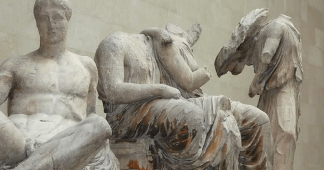Sunday’s vote is unlikely to yield a new government.
By Akis Georgakellos
the managing director of Strategο,
a communication and strategy firm in Athens,
and Harris Mylonas,
an associate professor of political science and international affairs
at George Washington University.
May 19, 2023
Greeks are eager for political stability. After years of economic turmoil, the country is within reach of winning back its investment-grade rating in international markets and rehabilitating its place in the eurozone. Geopolitically, tensions with Turkey in the Aegean Sea and new challenges for NATO demand clear-eyed political leadership in Athens. Yet Greece’s May 21 election is unlikely to deliver.
Four years ago, when Kyriakos Mitsotakis became Greece’s prime minister, many pundits and analysts expected that Greek politics would become less turbulent and more technocratic. Mitsotakis, who heads the center-right New Democracy party, ousted leftist Alexis Tsipras, who took office during one of the most politically volatile and economically challenging periods in Greece since its 1974 transition to democracy. However, hopes for calm under Mitsotakis were short-lived: The country soon faced the COVID-19 pandemic and the economic repercussions of Russia’s war on Ukraine.
New Democracy sought to counter economic hardship with generous energy and business subsidies, decreased taxes, and increased pensions. Mitsotakis also raised the minimum wage. And, throughout his tenure, he has made important investments in infrastructure and digitized much of Greece’s bureaucracy. But alleged scandals in Mitsotakis’s government, including the wiretapping and hacking of journalists’ and rival politicians’ phones, as well as a tragic railway accident in February have compounded the public’s suspicion of politics and politicians. Rampant inflation hasn’t helped.
It is in this context that Mitsotakis is asking Greeks to trust him with another four years. The prime minister has argued that his government has dealt effectively with unprecedented crises while also managing to improve Greece’s global standing. If reelected, New Democracy promises to substantially raise both public and private sector wages and put Greece on a stable path to economic growth.
Continue reading at foreignpolicy.com
We remind our readers that publication of articles on our site does not mean that we agree with what is written. Our policy is to publish anything which we consider of interest, so as to assist our readers in forming their opinions. Sometimes we even publish articles with which we totally disagree, since we believe it is important for our readers to be informed on as wide a spectrum of views as possible.











